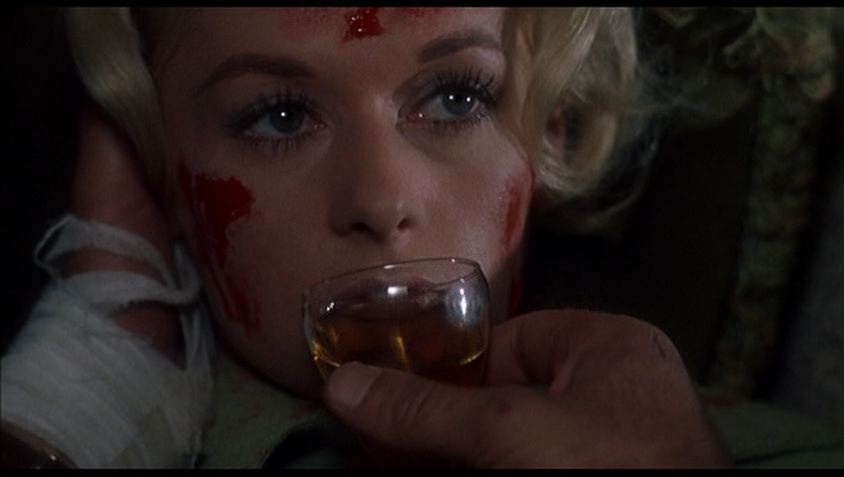Melanie's defeat and subordination by Lydia is musically represented in
the sounds of the final bird attack. Elizabeth
Weis points out that the bird
attacks in the film shift from being introduced visually to being introduced
aurally, but the attacks themselves seem to slowly drift into silence.[13] The apparent
silence in the attic attack signifies Melanie’s defeat and subordination.
Hitchcock has said, “To describe sound accurately, one has to imagine
its equivalent in dialogue. What I wanted to get in that attack is as if
the birds
were telling Melanie, ‘Now we’ve got you where we want you.
Here we come. We don’t have to scream in triumph or in anger. This
is going to be a
silent murder.’”[14]

That silence, with only the sounds of the wings flapping, accompanies Melanie as she is brutally defeated by the birds. Not even a scream is heard from Melanie. Weiz argues that the silence at the end represents Hitchcock’s “control over his characters, his viewers, and his art.”[15] This silence also undoubtedly represents Lydia’s matriarchal control over all relationships within her family. Mitch will not marry Melanie. Instead, Lydia will simply take in as a daughter what was once a bigger threat to her than the birds.
Wood is incorrect: this union is a cold union, the simple conquering of a threat under the mask of relationship.